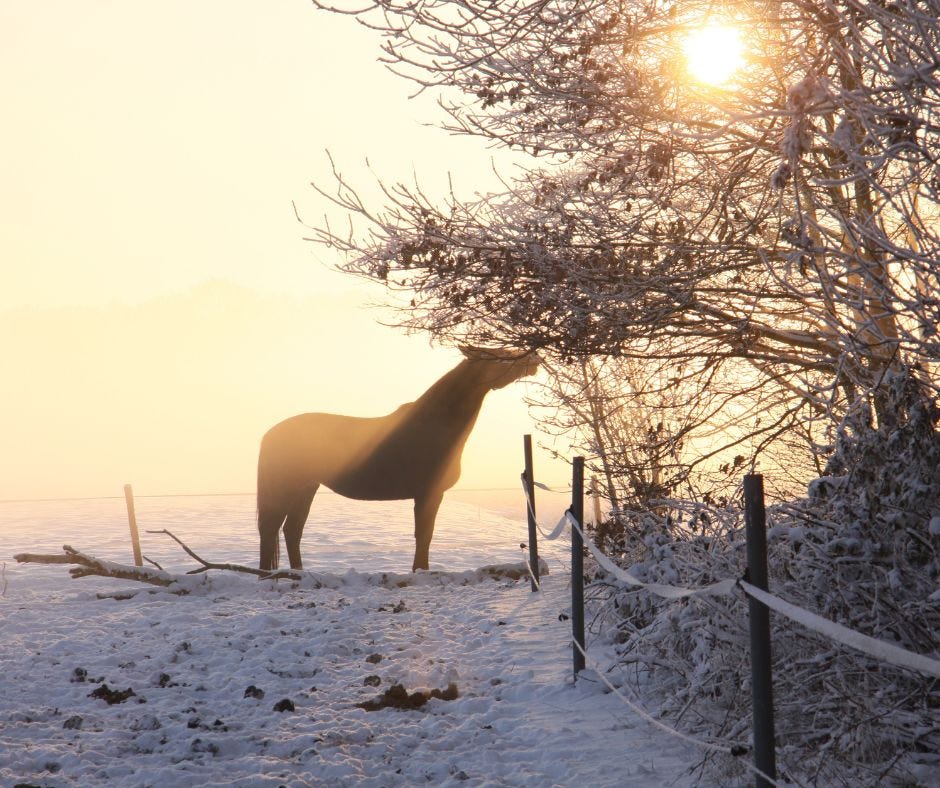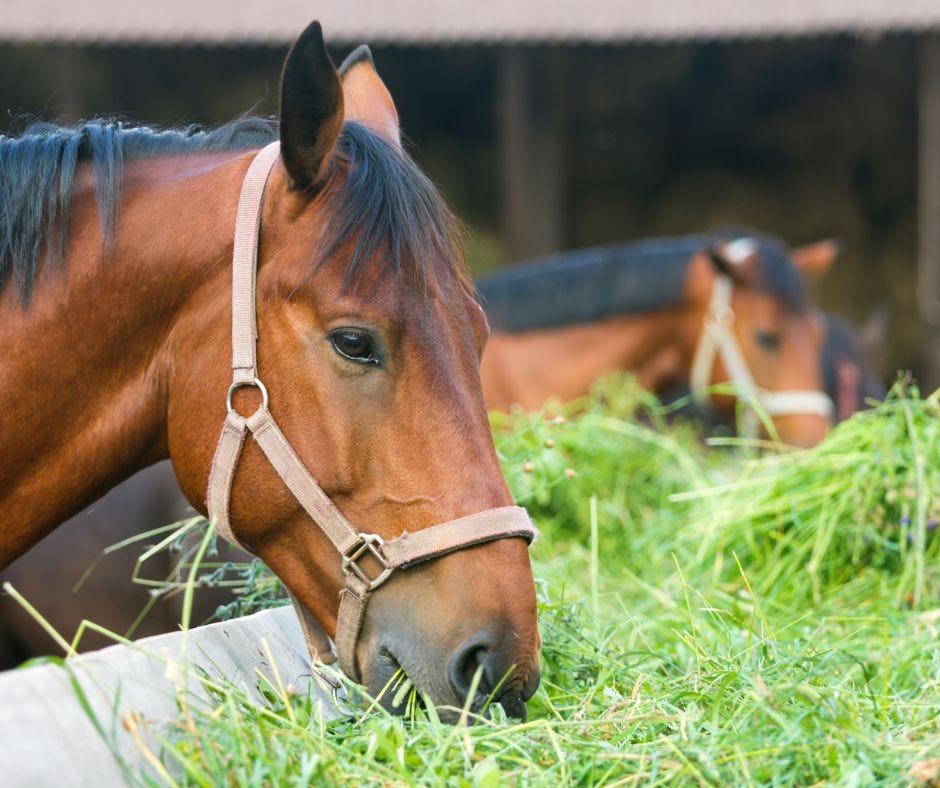We use cookies to make your experience better. To comply with the new e-Privacy directive, we need to ask for your consent to set the cookies. Learn more
Forage Only Diets for Performance Horses
When we know better, we do better… except in the case of feeding grain to horses - or so it seems.
Eliminating starchy grains & sweet feeds from the equine diet is rule number one… and yet many horse owners (especially those with performance horses) mistakenly believe that their horses have increased energy demands that require 'high energy' feeds to refuel them.
However evidence backed studies have now proven that horses perform better on forage only diets.
Evidence for Forage Only diets for perfomance horses
In a study conducted by Jansson and Lindberg, a group of racehorses were fed either a forage only diet or a forage & grain diet for 30 days. At the conclusion of the 30 days they were tested incrementally on a treadmill.
Researchers noted several differences between the two diets, including:
- Better performance was indicated in the horses fed a forage only diet (VLa4 tended to increase)
- Blood pH was higher during exercise on the forage only diet. This indicating that this diet counteracts parts of the acidotic effect of intensive exercise
- Muscle glycogen content was higher in horses on the diet with forage & grain.
- The faecal microflora in horses was shown to be more stable on a forage-only diet than on a conventional high starch diet. The flora also included fewer lactobacilli, especially Streptococcus bovis/equinus. Lactobacillus ruminis was found in horses on a high concentrate diet, but not in the same horses on a forage-only diet
The researchers concluded that a high-energy, forage-only diet alters the metabolic response to exercise and, with the exception of lowered glycogen stores, appears to have positive rather than negative effects on performance traits.
Read the full study here: https://pubmed.ncbi.nlm.nih.gov/22717208/
Things to note
While forage only diets meet the horse’s protein and energy needs, they may not meet the vitamins & mineral requirements. A very small feed (400-500g balancer pellets or vitamin/mineral supplementation with chaff, beet pulp etc) should be added.
Some "hard keepers" that have been fed a high concentrate diet for most of their life may need a very long adaptation period (months) before they can maintain body condition on a forage-only diet, even if the forage has a high energy content
How to Create a Forage Only Diet for Performance Horses
Forage is a plant material (mainly leaves and stems) eaten by grazing animals. To build a forage only diet for your horse follow these steps.
Start with hay. Plenty of hay. Ideally this should be combined with pasture access and a few different types of hay should be on offer (alfalfa, grass, timothy etc). This balance can be tweaked in accordance with your horse’s needs.
Then add some variety & enrichment with tree hay, cuttings, herbs, forbs and other plant material. These can be offered in treat balls or woven through fences or hay nets to encourage natural browsing behaviour.
Finally, supplement with a small amount of balancer pellets or a mineral mix combined with chaff, or chaff cubes/pellets.

Horses are natural browsers and encouraging natural browsing behaviours can be beneficial for their physical and mental health.









Validate your login